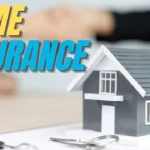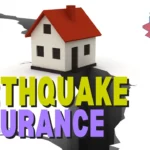Leaders that are managing their businesses encounter a lot of risks especially when it comes to safeguarding their investments. Situations occur in the most unpredictable times, thus it is always a fiscal challenge to restore after the incident. This is why business hazard insurance is such a safety net for every business being run and managed across the length and breadth of this country.
It provides for business property protection from different types of physical loss which is very vital for any business. Whether it is a fire that razes your building, a storm that crushes your tools of trade, or hooligans who trash your property, this insurance offers you cover.
It remains surprising to see that most business people, especially those who own small businesses, make the huge mistake of neglecting this coverage. When a disaster occurs, they have to look for ways and means of making and repairing the setback which can be very devastating.
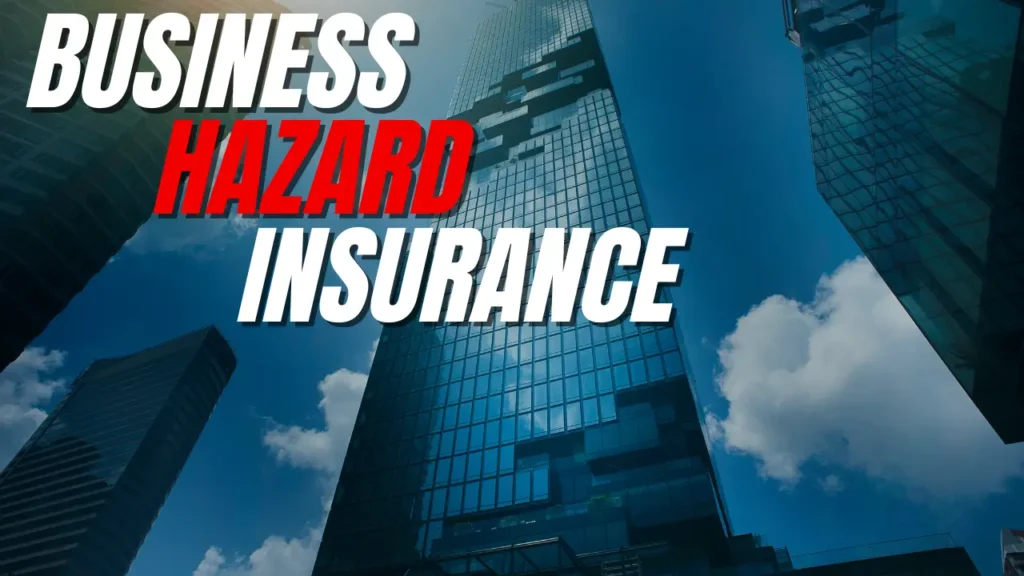
Business Hazard Insurance
Business hazard insurance is a form of insurance featuring protection of property from loss due to fire, storm, or theft among other occurrences. It also assists the business people to avoid the expenses incurred in times of disasters, where they have to face the calamities alone.
There is a distinction between business hazard insurance because the standard usually presents it as insurance for damage to materials like buildings, equipment, and inventory. However, they may choose to offer specific coverage in a certain range depending on the insurer and the policy. Many policies may also include lost wages if your business has to close briefly for repairs.
Hazard Insurance; Why Businesses Should Have It
There are always probable risks that may cause severe physical loss or damage to any business no matter how small or big it is. Failure to obtain the right insurance policies means that business owners are left to foot the bills of repairs and replacements, something that is heartbreaking to their financial nut.
For instance, think of managing a restaurant, where you have to plan where to buy your supplies and what to stock on the shelves. A fire could cause not only the loss of the building but also kitchen means and equipment, furniture, or stock. If you do not have business hazard insurance then you would have to dig into your pocket to cater for all these losses. With damage as such, this could quickly run into tens of thousands of US dollars, which most small businesses do not carry as cash reserves.
The insurance against hazards gives businesses financial backups in case something goes wrong as planned in the future. Business owners no longer have to stress about how they are going to acquire pricey machinery or reconstruct their storefronts since all they need to prioritize is how to get things back going.
The most important aspects of business hazard insurance are discussed in this paper following the following;
Physical Damage Coverage:
Business hazard insurance implies liabilities about physical aspects of business for instance buildings, machinery, and merchandise. This, I think, is what the policy shields and the argument is built around.
Loss of Income:
Some policies are for lost income in case of business interruption due to damages on the property for instance in case a business is required to close temporarily. Thus, it allows you to be able to afford to pay a lot of employees and many more expenses when your business is off.
Extended Coverage Options:
For instance, based on the provider, the business owner has an opportunity to include protection of the outdoor property, the company’s signages, or the business-associated automobiles.
Types of Business Hazard Insurance
General Liability Insurance
Although technically not a part of hazard insurance, general liability insurance typically goes hand-in-hand. Which covers bodily injury or property damage liability that arises from your business operations. Such as if a customer were to slip and fall in your store (i.e. was at fault), then general liability insurance would cover their medical expenses, or any legal fees associated with them suing. General Liability Insurance: This is a necessary coverage for businesses that have physical foot traffic of any kind.
Property Insurance
Property insurance is among the most important subcategories of business hazard insurance. This type insures the actual building if you own it and the fixtures and the contents of the building such as office furniture, machines, and merchandise. Whether it is fire, rampage, or a natural calamity it helps to replace or repair the damaged property without any burden on the owner.
Business Interruption Insurance
Business interruption insurance provides for the income that your business will lose when it has to shut down temporarily for instance, due to damages. It can likely be of extremely higher utility to such companies that have regular and steady revenues as others like retail shops, restaurants, or service companies. This policy pays for your loss of income when your business cannot get into operation, thus helping to continue paying the bills and employees.
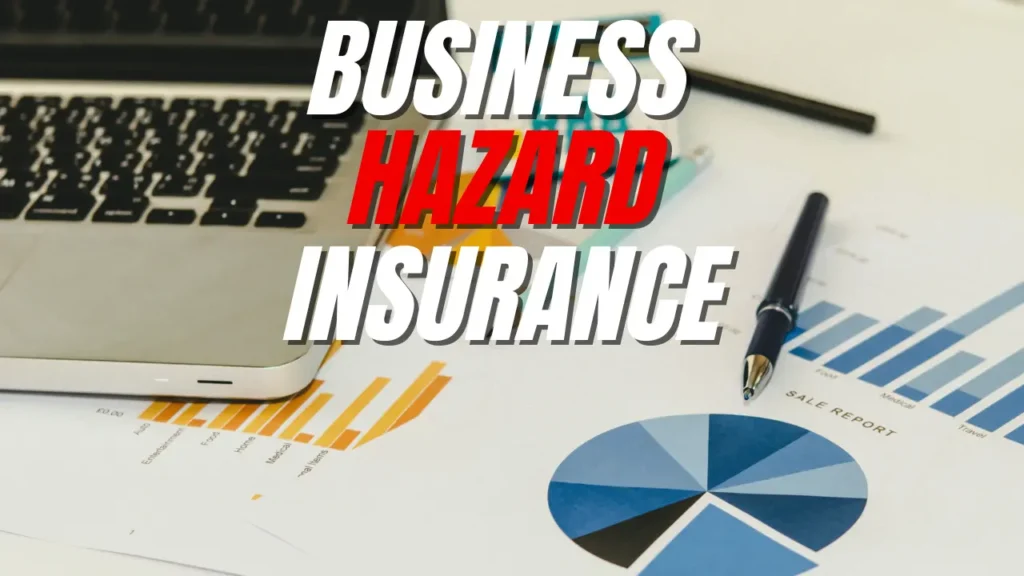
Business Hazard Insurance for Small Businesses
Why Small Businesses Need Hazard Insurance
The financial effect of physical damage affects small businesses mostly because they have more difficulty coping with the losses as compared to large businesses. Most small business people work with thin cash reserves and a catastrophe can easily consume all the money they have saved. That is why hazard insurance is most crucial to small businesses out of all types of insurance available.
For better understanding let us take an example of a small ‘retail store’. If a fire occurs resulting in fires to the structure of the building and contents, the cost of restocking the inventory, and repairing the building among other losses incurred due to business interruption could be very much a burden. Hazard failure would come with severe detrimental consequences, maybe the business would not be in a position to recover and thus have to close.
Special Car Insurance Coverage for Small Business
Fortunately, the majority of insurance companies cover different policies for small businesses as well. Such policies normally have options for additional or enhanced coverage that the business owner can opt for without having to buy some unwanted components. If you work from home or are a small business owner with a physical store, there’s a policy for you!
Business Property Insurance Rate
Business Hazard Insurance Costs Factors
The price of business hazard insurance will depend on a few different variables. By understanding these factors, you can make smart choices when selecting coverage.
What Type of Property:
What your business property is worth and what condition it’s in will also be factored into insurance costs. Older buildings may be more expensive to insure as they likely lack some of the modern safety features that newer properties have, and so cause a higher risk for your insurer.
Amount of coverage:
The higher the desired coverage amount, the more expensive your premiums will be. Still, you want to make sure that your coverage is extensive enough not just for the money you are spending on premiums but also so it completely covers all of your assets in case disaster strikes.
Is There a Potential for Risk:
Companies or other third please sourced organizations assess risk — They evaluate the likelihood of some risks occurring to your regular business operation. A store with a commercial kitchen may pay more because of the focal topic dangers just as office space might be lower since fires or wounds are less inclined to happen there.
Tips on how to lower Your Business Hazard Insurance Premium Increase The Deductible:
A higher this means less in monthly premiums. But this also means losing out on claim compensations and more pocket expenses.
Bundle Policies:
Some insurance providers offer their customers multiple policy codes; for instance, general liability insurance and property insurance at a cheaper price as compared to when obtained from different insurance providers.
Implement Risk Management Practices:
Having security systems, fire alarms, and other safety features in your home should also help in lowering your insurance costs since it may help to cut down on possible losses.
Look for when purchasing a business hazard insurance policy.
That’s why before choosing a business hazard insurance policy one has to consider all the options very conservatively.
Coverage Limits:
Ensure that the policy is full and adequate to protect your property. They may take a long time to determine the worth of all the assets, thus leading to underinsurance in case of a tragedy.
Exclusions:
Be sure to note any exceptions such as flooding or earthquakes in the policy. They may require additional coverage to protect against these occurrences.
Claims Process:
Select an insurance company that is known to pay claims quickly and fairly. Having a complicated or lengthy claims process can only make things more challenging during an already trying time.
Adapting Policies to the Business Environment
Some insurers have choices to allow the insured to increase the covers provided under the policy through the purchase of riders or endorsements. For instance, you may extend the policy to include outdoor signs, electronic media, or essential papers. It is always advisable to work with an insurer or a broker to adjust your policy cover to offer adequate and proper cover against the various risks that your business is exposed to.
As seen below, there are some distinct advantages of business hazard insurance.
Autonomous Finance as a Safeguard against O Uncertainties
Looking around and observing the world deeply, one can find out that no one can predict when calamity will occur. Accidents such as fire, storm, and theft are some of the calamities that can happen at any one time thus exposing business persons to so much loss and confusion. In Hazard insurance, there is not anything to worry most especially on the costs of repairing or even compensating for lost properties. Your insurance policy gives you the cash needed to put your business back into operation.
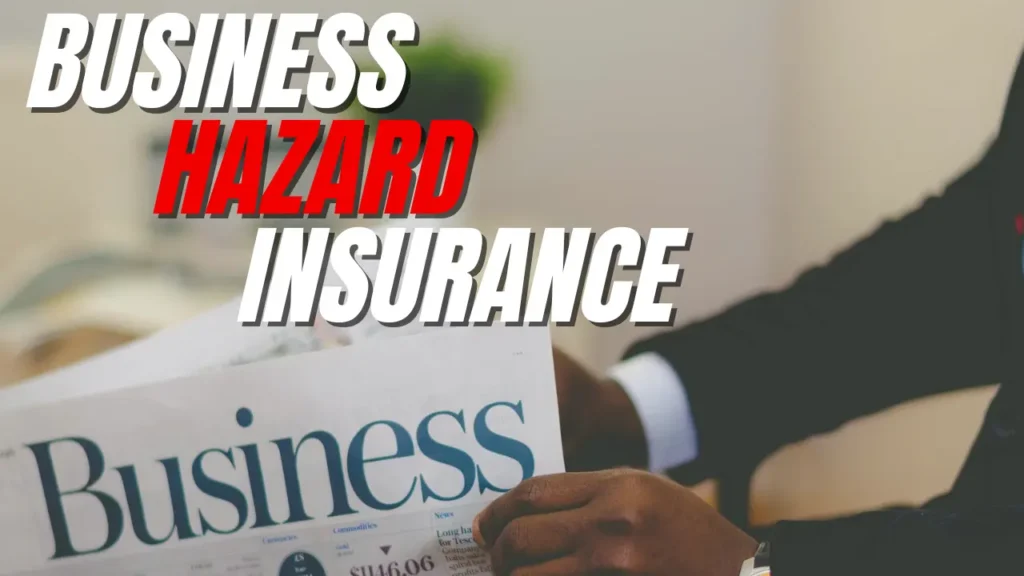
Honestly, liability protection and feeling at ease
Apart from providing financial security, business hazard insurance relieves you. The confidence that comes with insurance knowledge comes in handy when running a business since you are not preoccupied with possible disasters that can happen in the future or even working on measures to Insurance is especially important for any small business owner who may not be in a position to recover from a disaster since they have fewer resources to call on.
How to Get Business Hazard Insurance?
Steps to Secure a Policy
Because purchasing commercial hazard insurance comes without complications but it’s still significant, the steps to follow include:
Analyze The Risks: Be sure to consider different types of hazards that your business could potentially face for instance fires or thefts and natural disasters. This will assist you to understand what kind of policy may be appropriate for the same.
Request for Quotes: To decide, it is always a necessary action to ask multiple quotes from insurance companies. Assessment of coverage including exclusions than price
Conclusion
Liability: this is one of the most important covers that any business person can have to protect his business. The security of your commercial property from actual loss for whichever commercial entity you are operating whether a simple shop or a manufacturing firm is a necessity to consider. When you obtain the right policy, your business is protected from the financially negative impact of disasters and you can start getting your business back on its feet.
The cost differs in the geographical region, type of property, and the extent of coverage needed. For small businesses that are just starting up, it is advised that they should be ready to pay anywhere between $500 to $2000 every year.
Basic hazard insurance does not protect against loss due to flood, earthquake, and other similar conditions. Such always call for more policies, New Jersey’s being no exception.
Some of the ways through which carriers can implement cost containment measures include raising premiums and therefore increasing the deductibles, merging instances in which several policies are issued to the same customer, and insisting on risk management measures such as installing security systems and preventing fires among others.
It protects it from physical loss due to perils such as fire, storm, theft, and vandalism. It usually includes property in the form of buildings and machinery, stocks, and other forms of merchandise.




